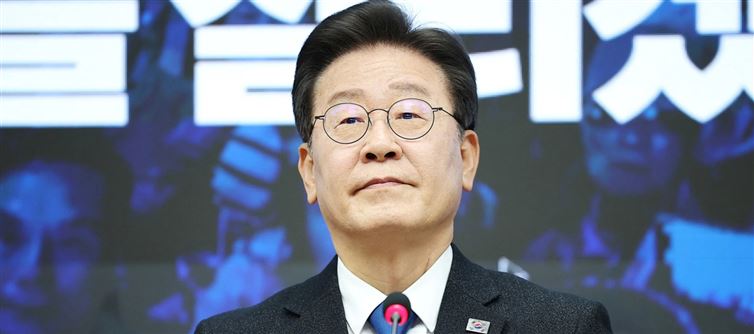
Months of turmoil and the shortest martial law in the country's history were followed by the vote. Voters sent a clear message for political change as turnout approached 80%, the highest level in 28 years.
Lee expresses gratitude to voters and pledges stability and peace.
Lee thanked supporters in Seoul and pledged to work toward a peaceful engagement with North Korea. He also pledged to stop military actions in the future.
He remarked, "I thank the people for their support," and promised to work toward national unity and make sure that "another military coup or repeat of the martial law crisis does not take place."
On Wednesday, Lee will take the oath of office as president and take immediate effect.
Who is Lee Jae-myung?
Lee Jae-myung has experienced an incredible trip at the age of sixty-one. He was a child laborer before becoming a prominent South Korean politician and human rights attorney. In the past, he was the governor of Gyeonggi province for three years and the mayor of Seongnam for eight years.
Yoon Suk-yeol defeated Lee by a slim margin in the 2022 presidential election, but Lee remained in politics as the leader of the opposition. Lee, who is well-known for his progressive views and criticism of gender disparities, corruption, and inequality, has frequently been called a populist by his detractors.
Survived a stabbing and made headlines during martial law
While visiting Busan in 2024, Lee was stabbed in the neck. The assailant came up to him and pretended to want an autograph before attacking. He survived the potentially fatal tragedy after being swiftly flown to Seoul National university Hospital.
Lee became well-known later that year when he live-streamed himself scaling the walls of the National assembly to vote against the emergency decree during South Korea's martial law issue. He arrived inside the building and joined other MPs in a historic vote to lift martial law, despite military cordons. His reputation as a resolute political figure was solidified when the video of his ascent went viral.




 click and follow Indiaherald WhatsApp channel
click and follow Indiaherald WhatsApp channel